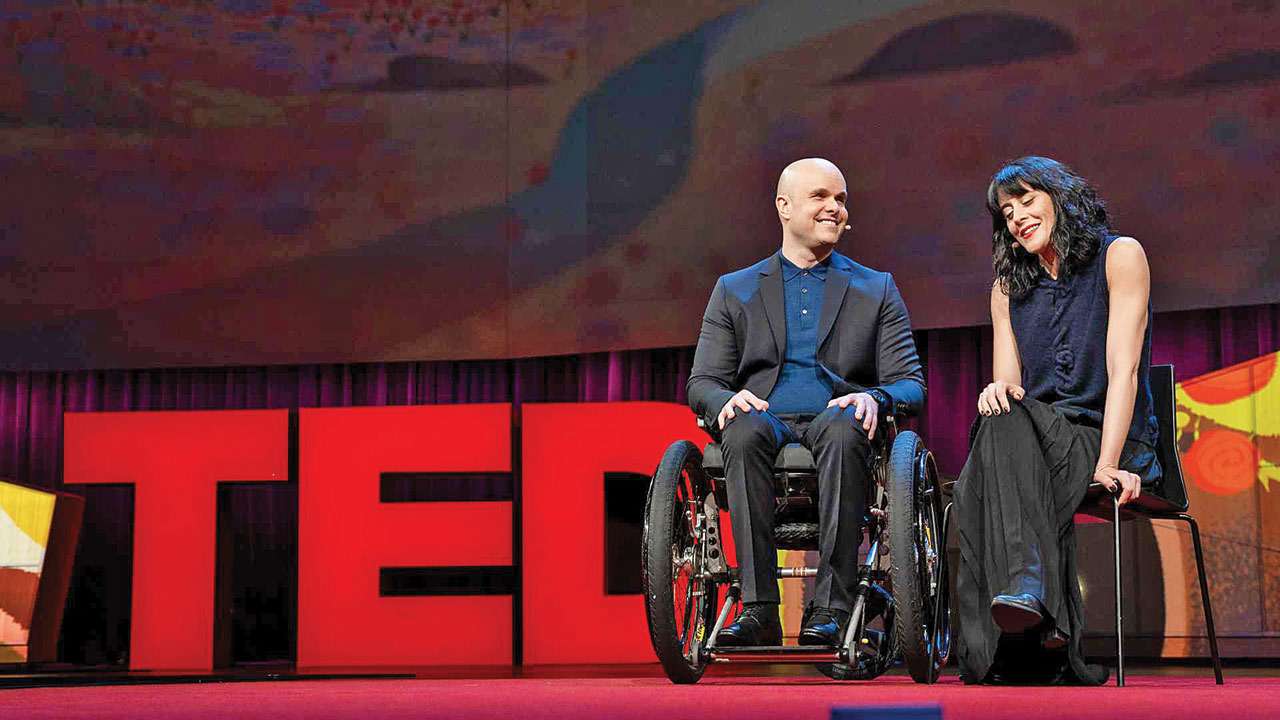
I was recently sent the link to a TED talk titled ‘A Love Letter to Realism in a Time of Grief’. The speakers were a couple - Simone George and Mark Pollock.
Mark an adventurer, was struck by blindness early in life. Later an accident paralysed him from the waist down. His partner Simone is a human rights lawyer. They are now committed to finding a cure to paralysis.
The resilience of Simone George and Mark Pollock as individuals and as a couple shine through every minute of their 19-minute talk.
Early in the talk, Simon, speaks of Viktor Frankl’s book Man’s Search For Meaning. One can see the bulwark on which their commitment to each other stands on.
Simon speaks of the difference between hope and realism. Hope is about life governed and fueled by goals, no different from deliberately putting all eggs in one basket.
Realism, on the other hand, is a pragmatic approach to hope. It’s about acknowledging the lay of the land and paving the way accordingly.
It is living one day at a time.
Viktor Frankl, an Austrian psychiatrist, lived through the Theresienstadt ghetto, Auschwitz, and camps linked to Dachau. He observed that fellow inmates who lived in hope, setting themselves deadlines for freedom which were in no way linked to their reality, as a way to survive the horrors of the concentration camps died when those deadlines passed. Others who accepted and worked with their situation survived.
Unmet hope, can lead to debilitating disappointment and the dilution of the will to get up and live.
Hope, is not always what it is meant to be. From time immemorial it has been understood to be an Achilles Heel. Thus it is no surprise that axioms, philosophies and religions have spoken of ways to avoid being drawn to this Siren’s song.
The Shrimad Bhagwad Gita, many millennia older, also speaks of the same thing. Krishna tells Arjuna to not be attached and one does not have the right to the fruits of one’s labour. Similarly, Lord Buddha advises ‘Be where you are; otherwise you will miss your life’
In the T-Group methodology, the concept of ‘Here and Now’ is key to understanding and respecting the individual and group processes.
It serves as the defining principle, which guides individuals to focus on the present instead of dwelling on the past or future.
This value placed on the present in interpersonal and relationships with the self is exemplified by Thich Nhat Hanh’s statement ‘We have more possibilities available in each minute than we realise.’
Janis Joplin said ‘You can destroy your now by worrying about tomorrow’. She was one of the most influential song writers and singers making a profound observation for the hippy set.
But it is not only her. There have been innumerable iterations of ‘Yesterday is history, tomorrow is a mystery’ and are now forwarded as good morning messages.
These words, that have been shared over the centuries, are but a recognition of a human affliction - the affinity to draw solace from an intractable future instead of deriving strength from the potential of the present.
It is surely not our sense of adventure that attracts us to this unknown future. Could it be a lens that sees the present as insurmountable? Or is it the ghosts of the past that leaden our feet?
Many religions that have found favour with humans to bring order in their lives abuse the two extremities of time.
Abrahamical religions have a future in mind when they speak of life after death. Hinduism, on the other hand focuses on the past with the concept of Karma. The underlying assumption is that a person’s current situation is based on past life actions. Thus, the concept of the unassailable ‘Here and Now’, as espoused by religions, is injected with a degree of time addled fragility.
Author has worked in development sector